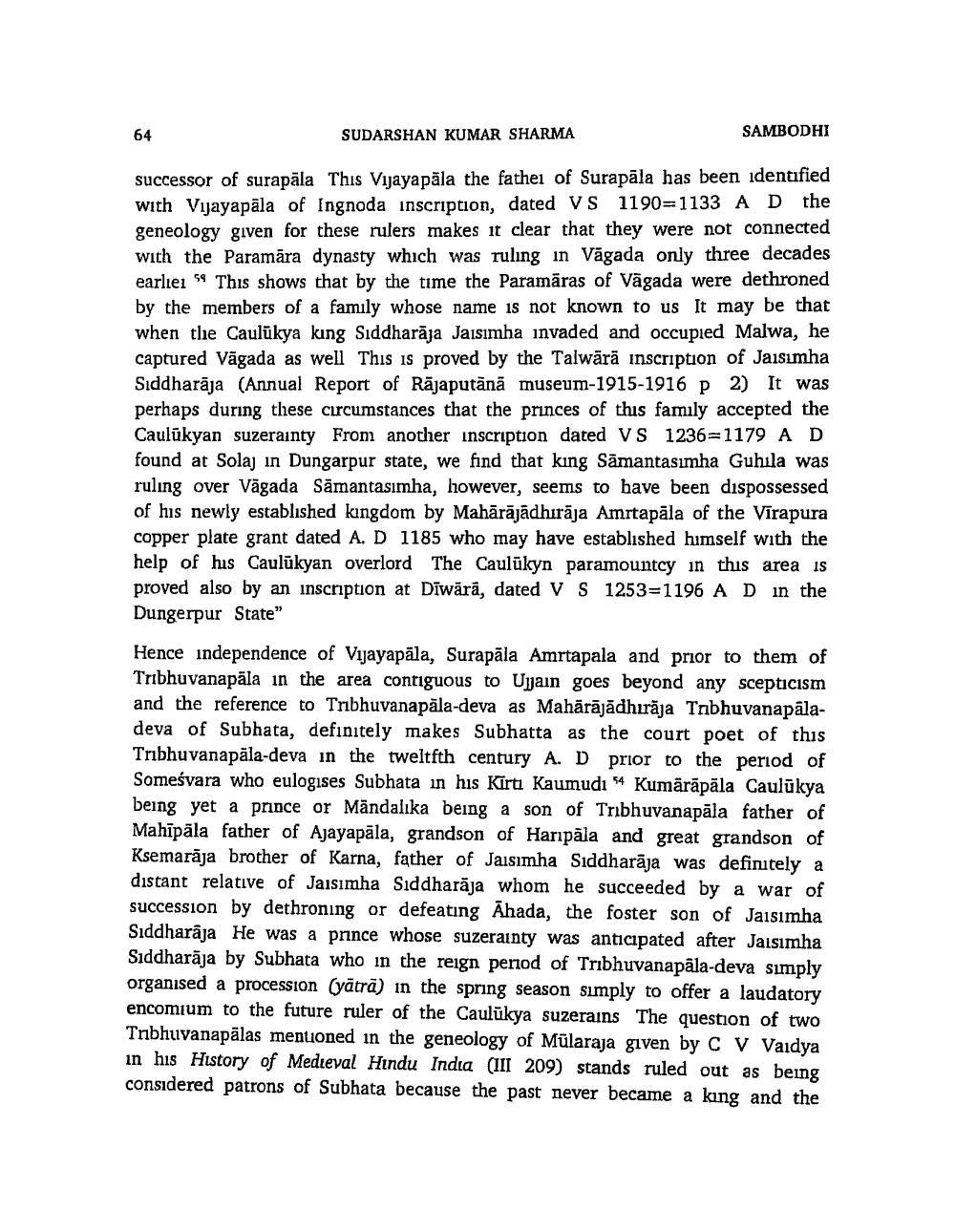________________
64
SUDARSHAN KUMAR SHARMA
SAMBODHI
successor of surapāla This Vijayapāla the father of Surapāla has been identified with Vijayapāla of Ingnoda inscription, dated VS 1190=1133 A D the geneology given for these rulers makes it clear that they were not connected with the Paramāra dynasty which was ruling in Vāgada only three decades earlier 54 This shows that by the time the Paramāras of Vāgada were dethroned by the members of a family whose name is not known to us It may be that when tlie Caulūkya king Siddharāja Jaisimha invaded and occupied Malwa, he captured Vāgada as well This is proved by the Talwārā inscription of Jaisimha Siddharāja (Annual Report of Rājaputānā museum-1915-1916 p 2) It was perhaps during these circumstances that the princes of this family accepted the Caulūkyan suzerainty From another inscription dated VS 1236=1179 A D found at Solaj in Dungarpur state, we find that king Samantasimha Guhila was ruling over Vāgada Samantasimha, however, seems to have been dispossessed of his newly established kingdom by Mahārājādhırāja Amrtapāla of the Vīrapura copper plate grant dated A, D 1185 who may have established himself with the help of his Caulūkyan overlord The Caulūkyn paramountcy in this area is proved also by an inscription at Dīwārā, dated V S 1253=1196 A D in the Dungerpur State"
Hence independence of Vijayapāla, Surapāla Amrtapala and prior to them of Tribhuvanapāla in the area contiguous to Ujain goes beyond any scepticism and the reference to Tribhuvanapăla-deva as Mahārājādhırāja Trbhuvanapaladeva of Subhata, definitely makes Subhatta as the court poet of this Tribhuvanapāla-deva in the tweltfth century A. D prior to the period of Someśvara who eulogises Subhata in his Kirti Kaumudi 4 Kumārāpāla Caulūkya being yet a prince or Mändalıka being a son of Tribhuvanapāla father of Mahīpāla father of Ajayapāla, grandson of Haripāla and great grandson of Ksemarāja brother of Karna, father of Jaisimha Siddharāja was definitely a distant relative of Jaisimha Siddharāja whom he succeeded by a war of succession by dethroning or defeating Ahada, the foster son of Jaisimha Siddharāja He was a prince whose suzerainty was anticipated after Jaisimha Siddharāja by Subhata who in the reign period of Tribhuvanapala-deva simply organised a procession (yātrā) in the spring season simply to offer a laudatory encomium to the future ruler of the Caulūkya suzerains The question of two Tnbhuvanapālas mentioned in the geneology of Mūlaraja given by C V Vaidya in his History of Medieval Hindu India (III 209) stands ruled out as being considered patrons of Subhata because the past never became a king and the




